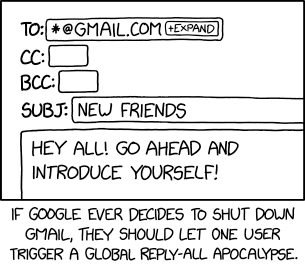2026-02-03T10:40:09Z
LONDON (AP) — British politician Peter Mandelson is quitting the House of Lords as he faces new questions, and a potential police investigation, over his relationship with Jeffrey Epstein.
The Speaker of the House of Lords, Michael Forsyth, said Mandelson has announced he will retire from Parliament’s upper chamber effective Wednesday.
The announcement came as the British government prepared legislation to eject Mandelson from the Lords and remove the noble title, Lord Mandelson, that came with his lifetime membership in Parliament’s upper chamber.
The government also said it had sent a file of material to police who are looking into allegations that Mandelson passed sensitive government information to the late sex offender.
Prime Minister Keir Starmer told his Cabinet on Tuesday that he was “appalled” by the revelations in newly released Epstein files, and was concerned there are more details still to emerge.
A trove of more than 3 million pages of Epstein-related documents released by the U.S. Justice Department has brought excruciating revelations about 72-year-old Mandelson, who served in senior government roles under previous Labour governments and was U.K. ambassador to Washington until Starmer fired him in September over his ties to Epstein.
The newly released files contain details about Mandelson’s contacts with the disgraced financier, including emails passing on nuggets of political information, some of which critics say may have broken the law. Police say they are reviewing reports of misconduct “to determine if they meet the criminal threshold for investigation.”
Starmer spokesman Tom Wells said that the government had sent police its assessment that the Mandelson-Epstein documents contained “likely market-sensitive information” about the 2008 global financial crisis and its aftermath that shouldn’t have been shared outside of government.
Among the revelations in the files:
— In 2003-2004, bank documents suggest Epstein sent three payments totaling $75,000 to accounts linked to Mandelson or his partner Reinaldo Avila da Silva. Mandelson has said that he doesn’t remember receiving the money and will investigate whether the documents are authentic. But he resigned from the governing Labour Party on Sunday, saying he didn’t want to cause the party “further embarrassment.”
— In 2008, Epstein avoided federal prosecution by pleading guilty to state charges in Florida of soliciting and procuring a minor for prostitution. He was sentenced to 18 months in jail.
Emails and text messages show that Mandelson’s friendship with Epstein continued after the financier’s sentence.
— In 2009, Epstein sent da Silva 10,000 pounds (about $13,650 at today’s rates) to pay for an osteopathy course. Mandelson told The Times of London that “in retrospect, it was clearly a lapse in our collective judgment for Reinaldo to accept this offer.”
Also in 2009, Mandelson, then business secretary in the U.K. government, appears to have told Epstein he would lobby other members of the government to reduce a tax on bankers’ bonuses.
The same year, Mandelson sent Epstein an internal government report discussing ways the U.K. could raise money after the 2008 global financial crisis, including by selling off government assets. Mandelson wrote: “Interesting note that’s gone to the PM.”
— In May 2010, Mandelson messaged Epstein that “sources tell me 500 b euro bailout” is almost complete. The message was dated hours before day European governments announced a 500 billion euro deal to shore up the single currency.
Starmer has ordered the civil service to conduct an “urgent” review of all of Mandelson’s contacts with Epstein while he was in government.
Health Secretary Wes Streeting said that Mandelson’s friendship with Epstein was “a betrayal on so many levels.”
“It is a betrayal of the victims of Jeffrey Epstein that he continued that association and that friendship for so long after his conviction,” Streeting told the BBC. “It is a betrayal of not just one but two prime ministers” — Gordon Brown, the U.K. leader between 2007 and 2010, and Starmer.
Epstein died by suicide in a jail cell in 2019, while awaiting trial on U.S. federal charges accusing him of sexually abusing dozens of girls.
An email requesting comment on the documents was sent to Mandelson through the House of Lords.
 JILL LAWLESS
Lawless is based in London, covering British politics, diplomacy and culture and top stories from the UK and beyond. She has reported for the AP from two dozen countries on four continents.
twitter
mailto
JILL LAWLESS
Lawless is based in London, covering British politics, diplomacy and culture and top stories from the UK and beyond. She has reported for the AP from two dozen countries on four continents.
twitter
mailto




